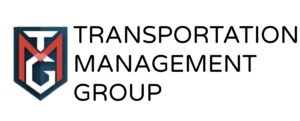Transportation Management Group
Top Reasons Trucking Businesses Fail (And How to Avoid Them)
Home / Blog
Top Reasons Trucking Businesses Fail (And How to Avoid Them)
- April 24, 2025

Starting your own trucking company is a bold move—one driven by the promise of independence, higher earnings, and long-term growth. But here’s the hard truth: nearly 80% of new trucking businesses do not make it past their first year. That staggering number isn’t just a warning; it’s a call to action. So what are the main reasons trucking businesses fail?
Understanding the root causes of trucking business failure is the first step toward building a company that not only survives but thrives. In this post, we’ll break down the most common reasons new carriers fold, and more importantly, show you how to avoid them.
The Harsh Reality of the Trucking Industry
Many new owner-operators enter the industry full of energy, ready to hustle. What often gets overlooked, however, is just how challenging it is to manage the financial and operational side of the business.
Unlike larger carriers, small fleets and solo drivers often lack dedicated staff for billing, compliance, and planning. When payments take 30, 45, or even 60 days to come in, it can create a devastating cash flow crunch—especially when fuel, insurance, and maintenance costs are due upfront.
To make matters worse, the trucking industry operates on razor-thin profit margins. If you don’t have the proper financial tools in place, even a few late payments or unexpected expenses can derail your plans.
For more on ensuring you get paid faster, check out How to Get Paid Faster in the Trucking Industry.
5 Reasons Most Trucking Businesses Fail
1. Cash Flow Issues
This is by far the most common killer. Delayed payments, mismanaged operating expenses, and lack of emergency reserves can sink even the most ambitious owner-operator. According to the U.S. Small Business Administration, misunderstanding cash flow is one of the top reasons small businesses across all industries fail—and trucking is no exception.
In trucking, cash flow problems often stem from waiting weeks for payment from brokers, shippers, or freight forwarders. Meanwhile, bills like fuel, insurance, and truck maintenance don’t wait. Without access to working capital, many carriers fail to cover basic operational costs and shut down as a result.
One major solution to this issue is factoring—a service that allows you to get paid quickly for your invoices. By factoring your receivables, you can turn unpaid invoices into immediate cash, enabling you to pay bills on time and keep your trucks on the road. Factoring provides a flexible, on-demand solution to cash flow problems without taking on debt.
2. Lack of Industry Knowledge
Trucking isn’t just about driving from point A to point B. To build a successful business, you need to understand rate trends, contract negotiations, fuel surcharges, route planning, and equipment management. New operators who focus only on the “driving” aspect of trucking often miss critical elements of running a business.
Trucking regulations can also be complex, especially when it comes to permits, compliance, and taxes. Not understanding the intricacies of these can lead to fines or even the suspension of your operating authority. Educating yourself on these issues is essential for long-term survival in the industry.
A strong knowledge base also means being able to effectively manage operational efficiency. For instance, driver retention is critical to your success. If you don’t offer competitive pay, benefits, and a supportive work environment, your drivers will likely leave for another company.
3. Poor Load Planning
Running empty miles, accepting underpriced freight, or relying too heavily on just one broker can quickly drain your resources. New carriers who don’t prioritize efficient load planning often lose out on opportunities to maximize their profits and end up working for less than they should.
Load planning is an art that requires constant adaptation. For example, understanding deadhead miles (the miles a truck runs without carrying freight) is essential for maximizing profitability. The goal is to reduce these miles and find the best-paying loads possible.
To make the most of your planning, leverage load boards and utilize routing software to optimize routes and minimize downtime. These tools can help you stay competitive in a market where margins are tight and every penny counts.
A key strategy here is diversifying your load sources. Depending on one broker or shipper can leave you vulnerable to market fluctuations. Instead, look for direct shipper contracts that offer better rates and more stable long-term relationships.
4. Underestimating Startup Costs
Many new truckers underestimate how much capital they need to start. While purchasing a truck may seem like the biggest investment, the real hidden costs are in insurance, licensing, maintenance, and other ongoing expenses. Underestimating these costs can lead to financial stress right out of the gate.
Not planning for the unexpected—whether it’s repairs, spikes in fuel costs, or slow payment from brokers—can leave you with nothing but debt. You should budget for both expected and unexpected costs to ensure you don’t run out of cash. Additionally, setting up an emergency fund can be a lifesaver during tough times.
Most importantly, invest in preventive maintenance for your truck. Regularly servicing your equipment not only extends its lifespan but can prevent costly breakdowns that could bring your operations to a halt.
5. Compliance Violations
The trucking industry is heavily regulated, and failing to comply with government regulations can result in hefty fines, penalties, and even the loss of your operating authority. Whether it’s hours of service (HOS) regulations, weight restrictions, or drug and alcohol testing, staying on top of compliance is crucial to running a successful trucking business.
Regulatory changes are frequent, and staying updated on the latest rules can be overwhelming. However, investing in compliance software or hiring a compliance specialist can save you from costly mistakes and ensure you’re always on the right side of the law. Additionally, attending industry conferences and webinars can help you stay informed about evolving regulations.
One often-overlooked area of compliance is tax management. Trucking businesses are subject to a variety of state and federal taxes. Consulting with a tax professional familiar with the trucking industry will help you avoid penalties and take advantage of tax deductions that are available to owner-operators.
How to Avoid Becoming a Statistic
Trucking success doesn’t require luck—it requires preparation. Here’s how to stay in the game:
Master your cash flow: Use tools like factoring to ensure predictable income. With TMG, you don’t have to wait weeks to get paid. Our team helps keep your trucks moving while we handle the back-office burden.
Screen your brokers: Not all loads are created equal. Freight broker credit checks are essential to avoiding unpaid invoices and wasted hauls.
Learn before you leap: Invest time in understanding rate trends, lane history, and fuel planning. Whether you’re running one truck or ten, information is your edge.
Use tech to your advantage: Dispatch software, load boards, and digital invoice systems can help streamline operations and save time. Technology can also help reduce errors and improve efficiency across all your business operations.
Get support: You don’t have to do this alone. Partnering with a team like TMG gives you access to expertise, tools, and fast funding when you need it most.
Lessons from the Road
We recently worked with an owner-operator who had nearly given up after losing thousands in unpaid invoices. By running broker credit checks and switching to same-day funding through TMG, he turned things around. Within six months, he expanded from one truck to three—and hasn’t looked back since.
For more advice tailored to new authorities, check out our guide: Getting Started with Factoring: A Guide for New Trucking Companies.
What You Can Do Today to Secure Your Future
If you’re just starting—or struggling to stay afloat—there are steps you can take right now:
Create a 90-day cash flow plan
Research factoring options
Read up on compliance requirements
Start tracking your key business metrics
Set aside a fuel and maintenance reserve
Avoid high-risk loads and clients
A helpful outside perspective can make all the difference. TruckingInfo’s article on common mistakes is packed with valuable tips from experienced carriers who’ve seen it all.
Building a Strong Brand and Marketing Your Trucking Business
Long-term success in trucking isn’t just about operational efficiency and compliance—it’s also about building a strong brand. As the industry becomes more competitive, standing out is essential.
Invest in your business’s reputation by consistently delivering excellent service. Word of mouth and online reviews are powerful marketing tools in the trucking industry. Make sure your website and social media accounts are active, professional, and reflect your company’s values.
In addition to organic growth, consider using online advertising and SEO strategies to ensure potential clients find you first. Offering a unique service or specialization (e.g., refrigerated transport or oversized loads) can also help you differentiate yourself in a crowded market.
There’s no shame in struggle—only in giving up without a fight. Trucking business failure is real, but with smart planning and the right partners, it’s not inevitable.
If you’re ready to build a resilient, profitable trucking business, TMG is here to help. From fast funding to expert support, we’re the team behind your wheels.
